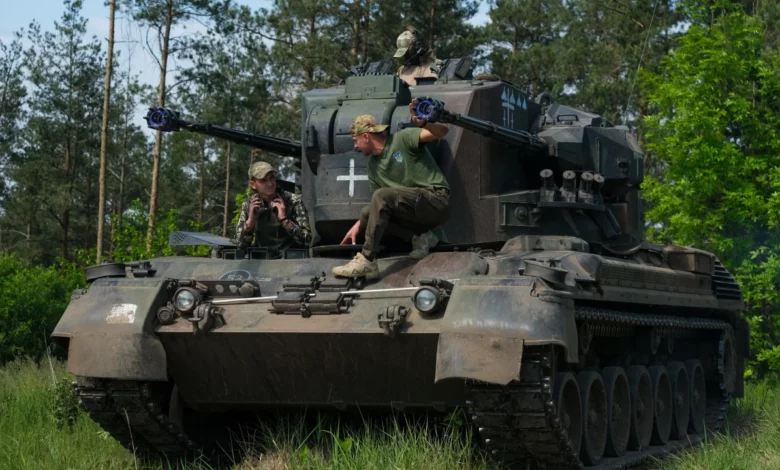
The drive takes us through unmarked roads and fresh trails in a remote wooded area.
“We’re nearly there,” our driver signals, pointing at a dot on a map, a location shared by the Ukrainian military.
We turn a corner and, in the bushes, we see the Gepard, a German-made self-propelled anti-aircraft gun.
Air defense units like this one can be the difference between life and death, whenever Russia launches missile strikes or fills the skies with swarms of Iranian-made drones.
They are frequently targeted by Moscow and this type of access is rare.
“You are looking at a Gepard 1 A2 self-propelled anti-aircraft gun,” Oleh, one of the gun’s operators says.
“The turret is equipped with two 35 mm guns made by Orlikon, the rate of fire of these guns is 550 rounds per minute per gun, which is 1,100 rounds per minute in total.”
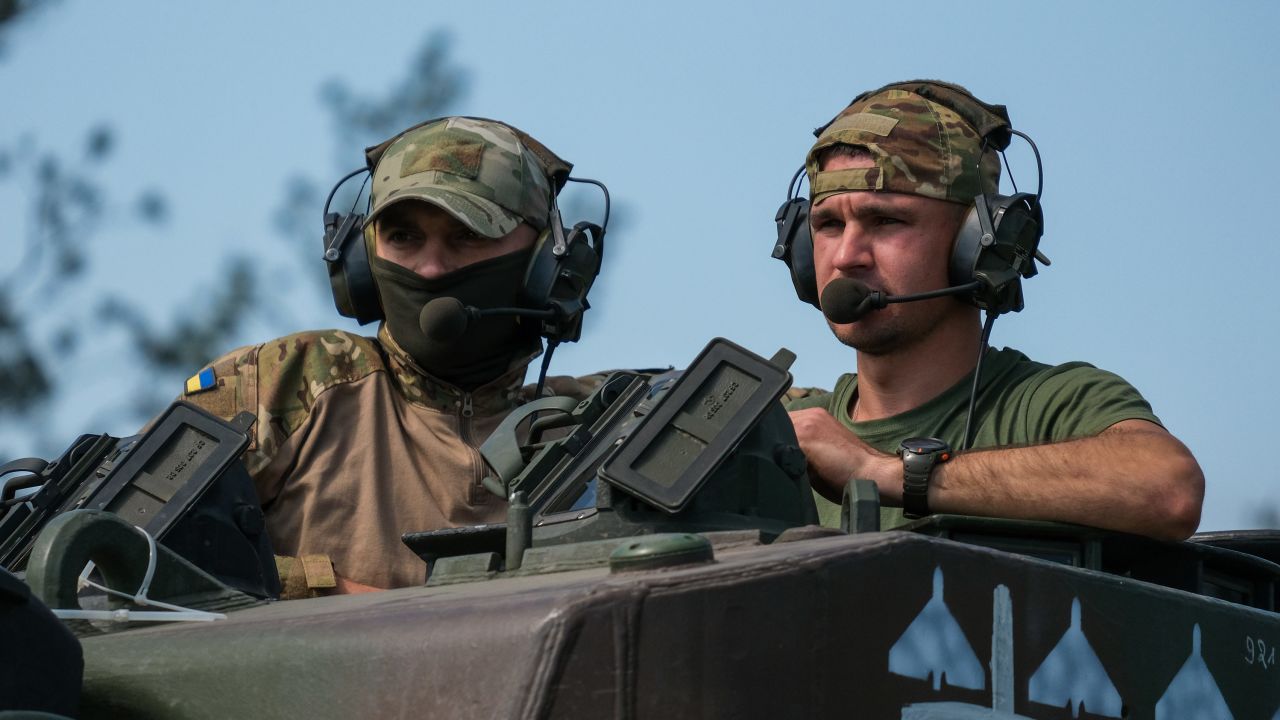
This is one of 34 Gepards Germany has sent to Kyiv, with more already promised. The system, first built in the 1970s and decommissioned by Berlin in 2010, is old but reliable and has been a game changer for Ukraine.
“Thanks to the fact that this anti-aircraft system has a computer system that automatically helps us to detect the target, capture it and help us destroy it as soon as possible,” Oleh explains.
“There may be more than one target, maybe three or four targets, and we need to destroy them one by one, so the computer system makes it as easy as possible for the operator to do their job.”
His unit has already shot down four Shahed drones and two missiles.
“[The Russians] like to say that their missiles are impossible to shoot down, but when the technology allows, the crew is motivated, trained and knows their job, nothing is impossible,” he adds. “We can destroy any enemy target.”
Because of Western donations, Ukraine now field a multi-layered air defense network capable of hitting short, medium and long range targets.
The Gepard is the tip of the spear in an arsenal that now includes Franco-Italian SAMP/T, German Iris-T, as well as the American NASAMS and Patriot air defense systems, among others. All of these are kept under even more secrecy, in undisclosed locations away from prying eyes, to avoid targeting by Russian forces.
And the results are on display, with Russian missile and drone strikes inflicting less and less damage.
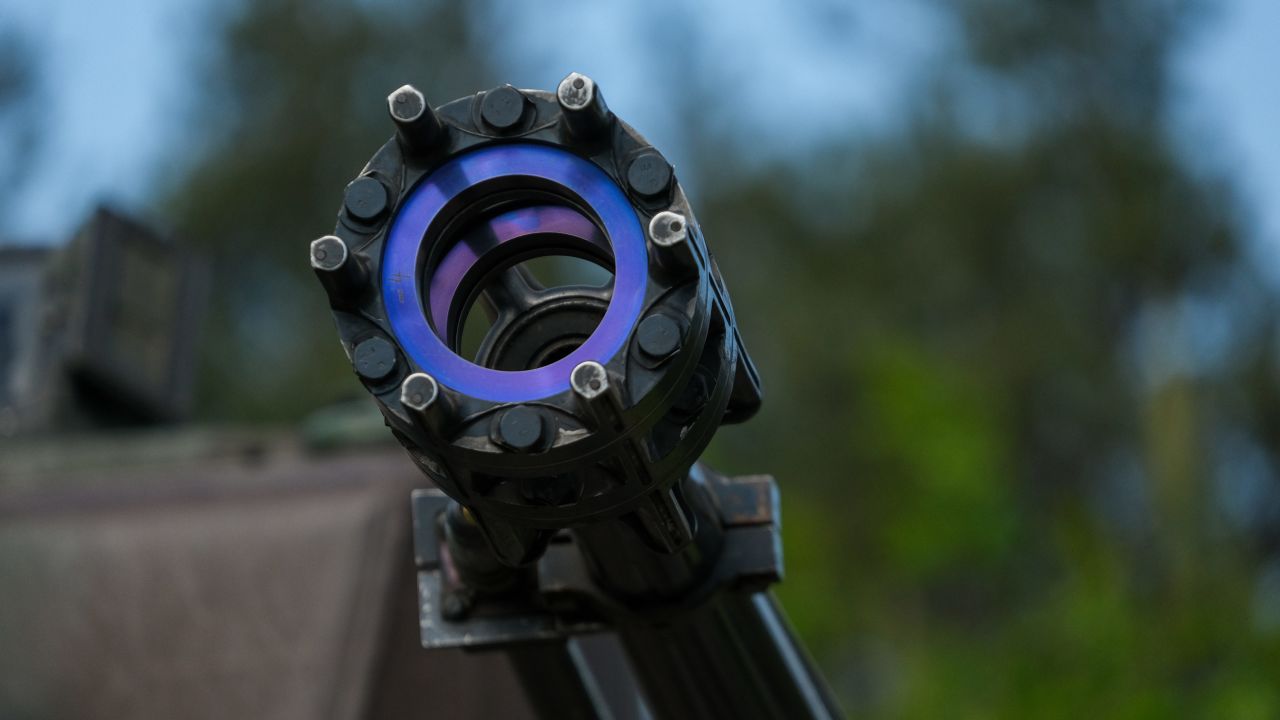
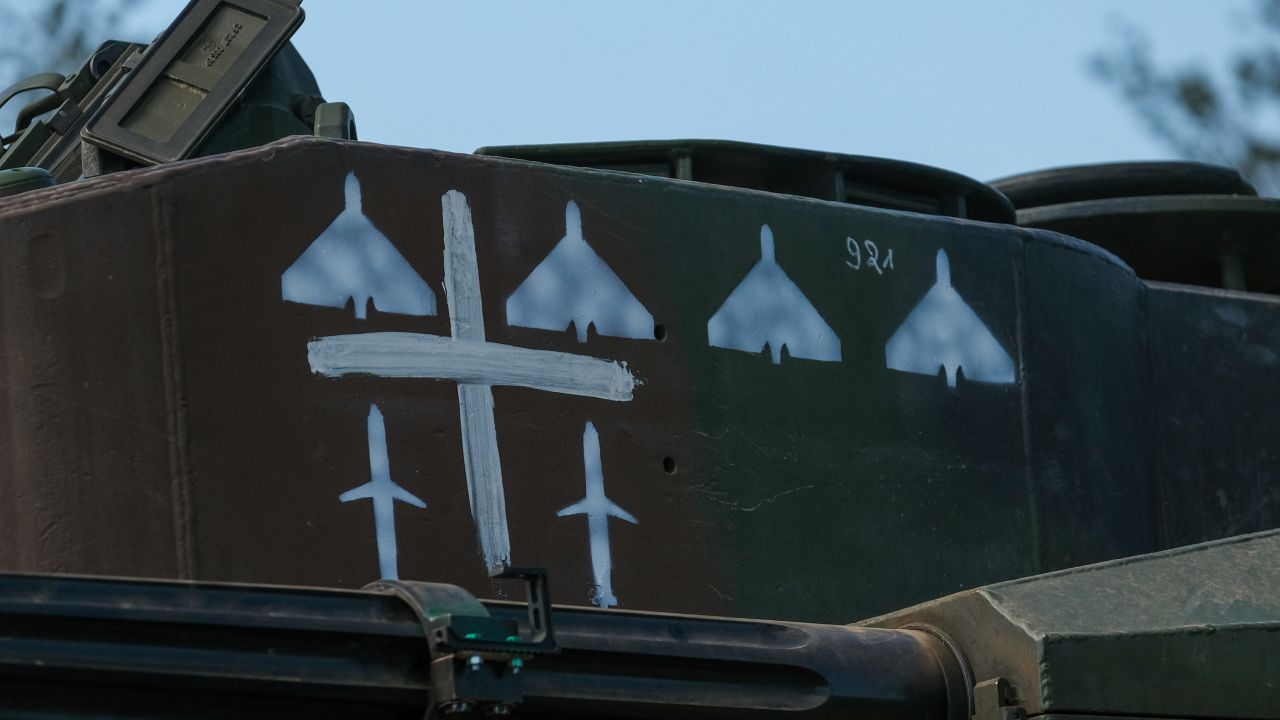
“By enriching our air defense system with such very effective models, we increase the effectiveness of the air defense system in general, in particular, we have the means that can fight Kinzhals and ballistic missiles, as well as cruise missiles and strike drones,” Lieutenant General Serhii Naiev, Commander of the Joint Forces of the Armed Forces of Ukraine says.
Lt General Naiev has oversight over the Gerards and says their work in combination with other systems is why Ukraine’s air defenses have become so effective.
“We place them at appropriate distances in the overall air defense concept. This gives the result that we see with our own eyes when we count the number of enemy targets shot down,” he explains.
“The percentage is constantly increasing, now the efficiency is over 80%.”
He says the current success rate has no parallel.
“This is the efficiency of our crews, these guys, and the assistance provided by our partners. We are grateful to our partners,” Naiev says. “We’ll definitely continue learning and will definitely continue to defend our land from air strikes.”
Dnipro strike
Still, some drones and missiles do break through Ukraine’s anti-aircraft defenses.
Sometimes their impact is minimal, but sometimes it is devastating, such as Friday’s deadly strike in the city of Dnipro.
“S-300 or S-400 anti-aircraft guided missiles, this is the type of weapon the occupiers often use attacking the frontline areas. Presumably, it was these types of rockets that struck civilian objects [in Dnipro],” Yurii Inhat, spokesman for Ukraine’s Air Force command said after the strike.
“Using this type of weapon in the densely populated cities is pure terrorism.”
Lt. General Naiev says to stop such attacks breaking through its defenses Ukraine needs more equipment, more ammunition and more training for its personnel.
“We realize that the protection of civilians and important critical facilities depends on the amount of equipment we have received and the training of our personnel,” Naiev says.
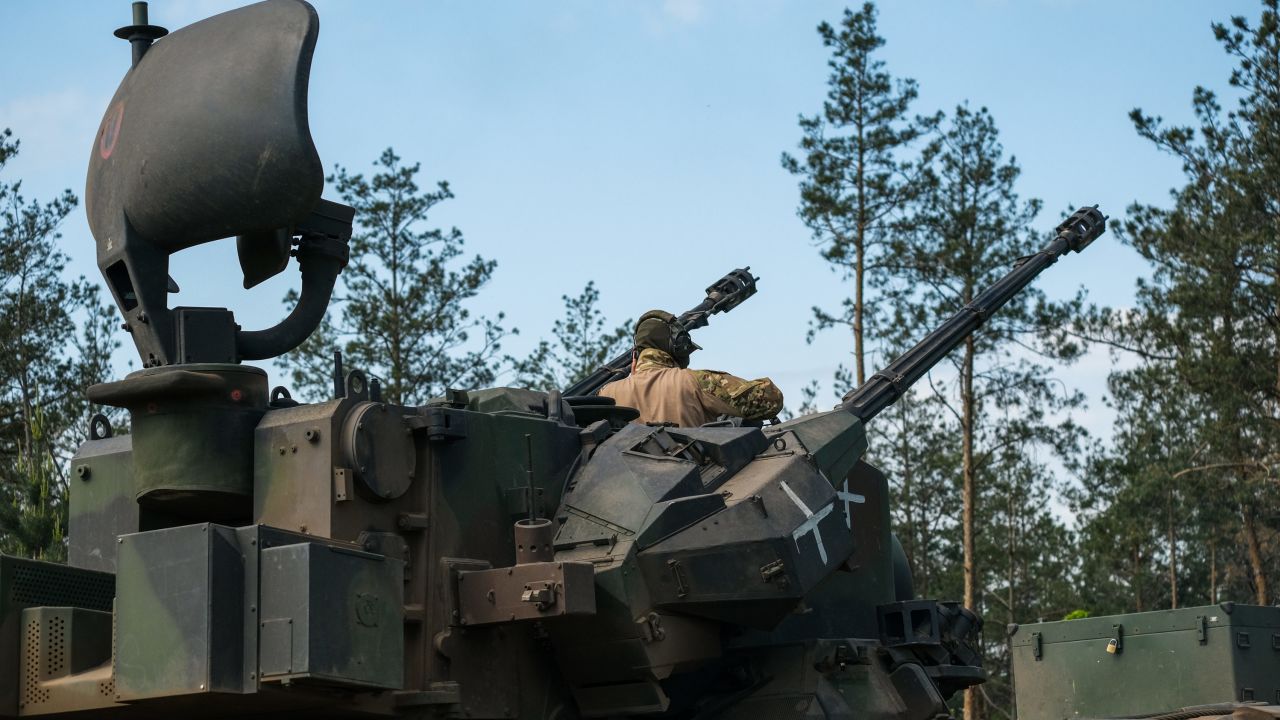
“In order to increase and improve the air defense system, we need more of the latest models and certainly ammunition and missiles for them, because the enemy tests our air defense system almost every night.”
“We are spending our missiles and ammunition,” he adds.
Oleh agrees. “We are very effective in doing our job, but in order to push the enemy out of our land, we certainly need more weapons,” he says.
Presidential adviser Mykhailo Podolyak says the Ukrainian government is trying to get its soldiers what they need, asking allies for additional weapons.
“President Zelensky, together with the leaders of other countries, has built an almost perfect system of closed skies over Ukraine, which consists of many different elements of missile defense,” he says.
“But in order for the sky to be absolutely covered, especially from guided air bombs and from ballistic missiles with a close range, which have an approach time of 1.5 minutes, we need F-16s for that.”
“Undoubtedly [our allies] will finally allow us to close the sky and then Russia will lose its last trump card – the ability to terrorize the civilian population of Ukraine using aerial attacks.”
From defense to offense
As Ukraine shifts from defense to offense, preparing to launch a much anticipated counteroffensive, air defense assets like the Gepard will also play an important part protecting advancing troops.
“[Air defense] is very important in order to protect the counteroffensive groups during their movement, also for the creation of proper offensive groups, and during the conduct of the offensive as an air cover, because the enemy will throw all available forces that he has to reduce the combat potential of our offensive,” Lt. General Naiev explains.
“Success on the ground during the advance and liberation of Ukrainian territory will depend on high-quality air defenses.”
In some cases, air defense systems can also be used for offensive purposes.
“We can destroy the Su-25, Su-35 and Su-54, which are the most promoted aircraft of our enemy,” Oleh says. “We can also work on ground targets, on armored vehicles.”
“We have additional weapons, we can use shells that can hit lightly armored and armored vehicles,” he adds.




